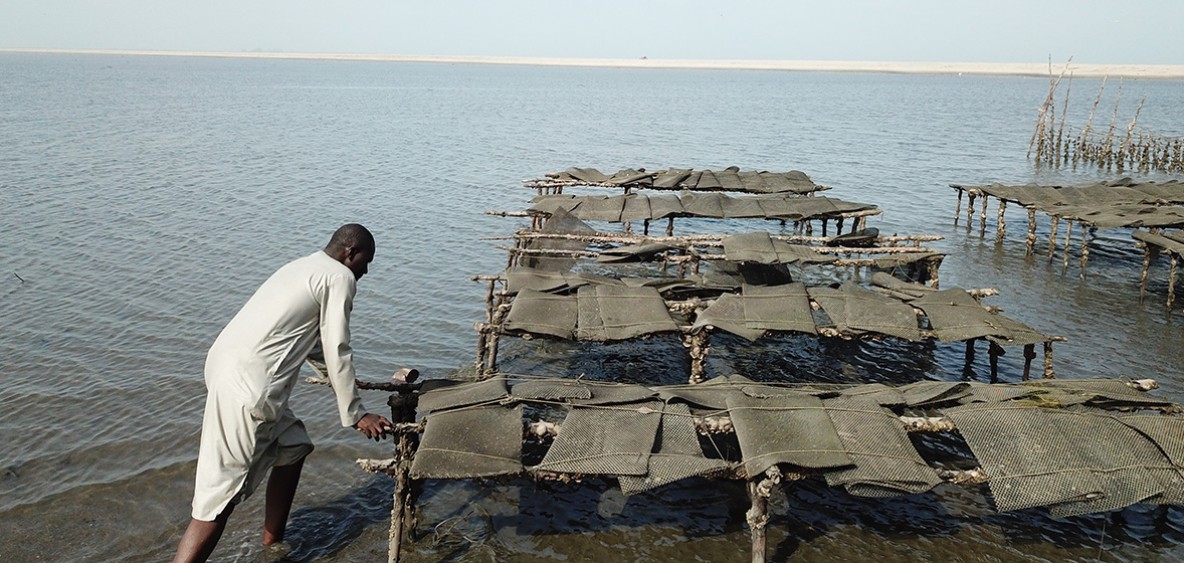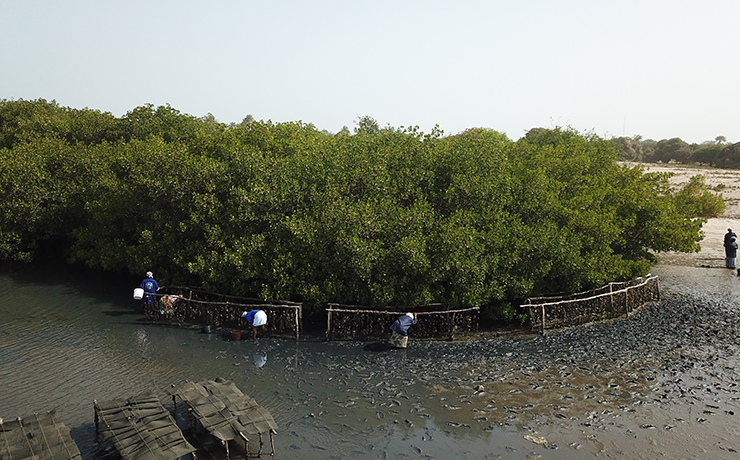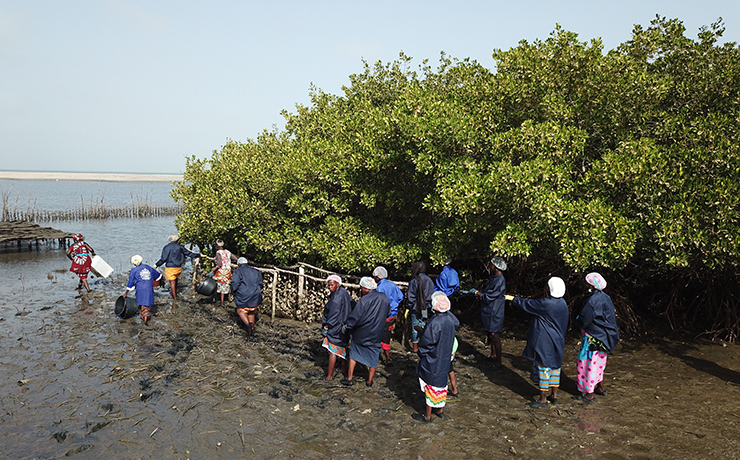
By engaging Mangrove User Associations and other community-based organisations in the restoration of 800 hectares of mangrove ecosystems in the Saloum Delta, the RFS Senegal project is establishing a foundation of inclusion and local ownership that will be instrumental to ensuring the sustainability of restoration and conservation efforts.
Mangrove forests are some of the most important ecosystems on the planet. They provide essential ecosystem services for coastal communities where they serve as valuable filtration systems and barriers to soil erosion, reduce the impacts of floods and storm surges, and are home to a wide variety of species that contribute to both food and livelihood security.
In Senegal, mangrove forests are disappearing at an alarming rate. Climate change, pollution, expansion of agricultural and aquaculture activities, overharvesting, construction of dams and irrigation systems, as well as urbanisation have led to widespread degradation of coastal forests.
Rural coastal communities bear the brunt of this loss. There are direct economic impacts due to loss of wood supply, charcoal production, and fish supply for household consumption, sale or trade. There are impacts to agricultural systems and food security through increased salinization of soil, loss of soil water content, and soil erosion. There are direct impacts to the provision of water as water supply and quality declines, the provision of energy as biofuel sources are depleted, and an increase in greenhouse gas emissions through loss of carbon sinks. Communities are also threatened by an increased exposure to flooding from storms and sea level rise, leaving vulnerable communities even more exposed to the impacts of climate change.
In order to reverse this trend, the RFS Senegal project, implemented by IFAD and UNIDO, is working with communities to restore mangrove ecosystems and rehabilitate 800 hectares of land within targeted watershed areas. The RFS project is using a three-pronged approach to restore these ecosystems, focusing on (1) supporting communities in the preparation of watershed management plans; (2) providing technical and financing support to set up mangrove plantations; and (3) promoting alternative income-generating activities.

In February 2020, the RFS Senegal project held workshops to present the restoration approach and secure the local buy-in of key stakeholders in Bassoul, Djirnda, Djilor, Dionewar, Diossong, Palmarin, Sokone and Toubacouta. The workshops, attended by over 150 administrative authorities, local elected officials, technical experts, community-based organisations and Mangrove User Association members, were used to conduct an environmental and social assessment of the potential sites for rehabilitation and conservation within each of these communities. The participatory assessments were then used to select the final sites for restoration, which will take place between August and October of this year.

Key to this process is the involvement of Mangrove User Associations (MUAs). MUAs are formal organisations that bring together farmers, community representatives, and local leaders to sustainably manage the use of mangrove resources within communities. MUAs serve as a platform for participatory decision-making to govern the use of mangroves with the ultimate goal of enabling more sustainable use and more equitable sharing of benefits.
The RFS Senegal project has actively engaged MUAs in the identification of rehabilitation sites, the selection of project leaders for each site, and the identification of alternative income-generating activities, such as beekeeping and oyster farming. The MUAs have provided hands-on support in getting these activities up and running. MUAs in the Saloum Delta have been working with the RFS project to construct 600 beehives—critical inputs that will help the RFS project establish a beekeeping value chain in the delta.
The involvement and support of MUAs is a critical element of ensuring the sustainability of RFS project outcomes. The RFS Senegal country project is working to develop capacity within the MUAs and other community-based organisations so that they can play an integral part in the restoration process and become leaders of future conservation efforts. By involving MUAs in the very beginning stages of planning, management and implementation, the country project team is building a foundation of inclusion and local ownership that will be instrumental to the sustainability of mangrove restoration and conservation projects, now and in the future.
Subscribe to our monthly newsletter to receive updates on stories directly from the field across all our projects, upcoming events, new resources, and more.